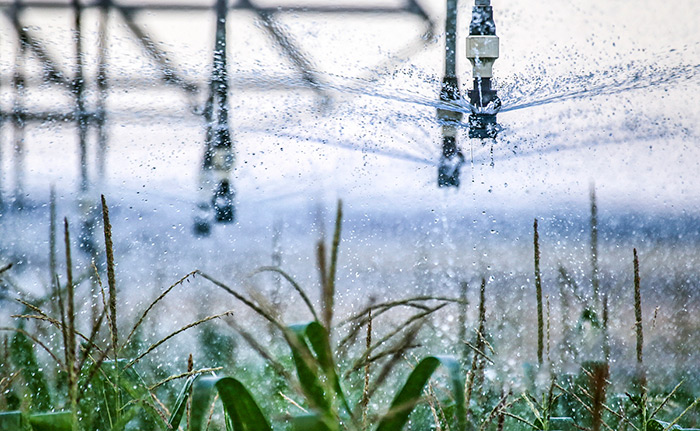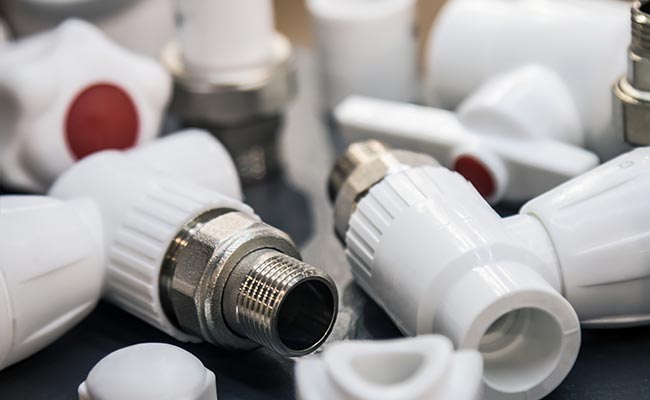You need to control water flow in a new piping system. You see “PVC ball valve” on the parts list, but if you don’t know what it is, you can’t be sure it’s the right choice for the job.
A PVC ball valve is a durable plastic shutoff valve that uses a rotating ball with a hole in it to control the flow of liquids. Made from Polyvinyl Chloride, it is affordable and highly resistant to corrosion and rust.
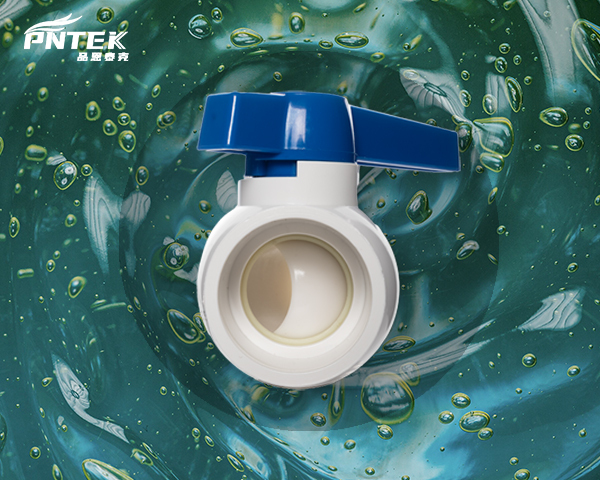
This is the very first product I introduce to new partners like Budi in Indonesia. The PVC ball valve is the foundation of modern water management. It’s simple, reliable, and incredibly versatile. For a purchasing manager like Budi, a deep understanding of this core product is essential. It’s not just about buying and selling a part; it’s about providing his customers with a trusted solution for everything from home irrigation to large-scale industrial projects. A win-win partnership starts with mastering the basics together.
What is the purpose of a PVC ball valve?
You have a pipeline and need to control what flows through it. Without a reliable way to stop the flow, any maintenance or repair will be a huge, wet mess.
The main purpose of a PVC ball valve is to provide fast and complete on/off control in a fluid system. A quick quarter-turn of the handle can either fully stop or fully allow flow.
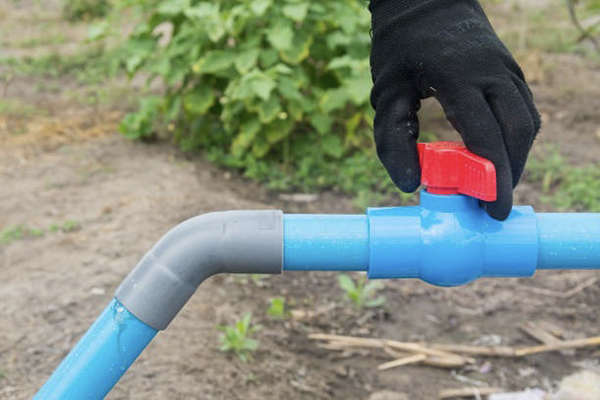
Think of it as a light switch for water. Its primary job is not to regulate the amount of flow, but to start it or stop it decisively. This function is critical in countless applications. For instance, Budi’s contractor clients use them to isolate sections of a plumbing system. If a single fixture needs repair, they can shut off water to just that small area instead of the whole building. In irrigation, they use them to direct water to different zones. In pools and spas, they control the flow to pumps, filters, and heaters. The simple, quick action of the ball valve makes it an essential tool for providing positive shutoff, ensuring safety and control over the entire system. At Pntek, we design our valves for a perfect seal, so when it’s closed, it stays closed.
What does PVC ball mean?
You hear the term “PVC ball” and it sounds small or confusing. You might think it refers to a separate part, making it harder to understand the product and place an accurate order.
“PVC ball” describes the two main parts of the valve itself. “PVC” is the material, Polyvinyl Chloride, used for the body. “Ball” is the rotating sphere inside that blocks the flow.
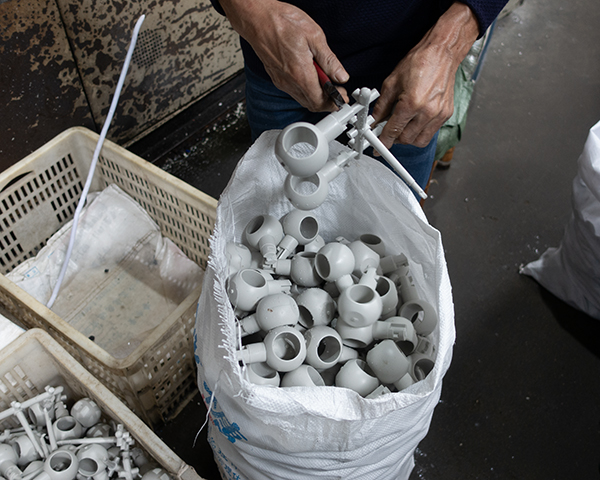
Let’s break down the name, as I often do for Budi’s new salespeople. It’s not as complex as it sounds.
- PVC (Polyvinyl Chloride): This is the specific type of durable, rigid plastic the valve body is made from. We use PVC because it is a fantastic material for water systems. It’s lightweight, which makes it easy to handle and install. It’s also fully resistant to rust and corrosion, unlike metal valves which can degrade over time, especially with certain chemicals or hard water. Finally, it is extremely cost-effective.
- Ball: This refers to the mechanism inside the valve. It is a sphere with a hole (a port) drilled straight through it. When the valve is open, that hole lines up with the pipe. When you turn the handle, the ball rotates 90 degrees, and the solid side of the ball blocks the pipe.
So, “PVC ball valve” simply means a valve made of PVC material that uses a ball mechanism.
Which is better brass or PVC ball valves?
You’re deciding between brass and PVC for a project. Choosing the wrong material can lead to premature failure, budget overruns, or even contamination, putting your reputation on the line.
Neither is better; they are for different jobs. PVC is ideal for cold water, chemical lines, and cost-sensitive projects because it is corrosion-proof and affordable. Brass is superior for high temperatures and pressures.
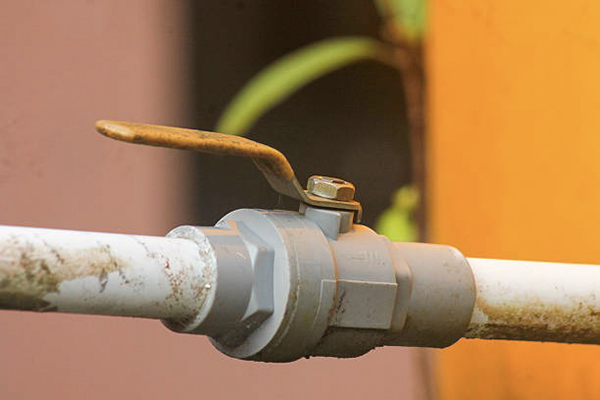
This is a common question from Budi’s customers, and the right answer shows true expertise. The choice depends entirely on the application’s specific needs. I always recommend using a simple comparison table to make the decision clear.
| Feature | PVC Ball Valve | Brass Ball Valve |
|---|---|---|
| Corrosion Resistance | Excellent. Immune to rust. | Good, but can corrode with hard water or chemicals. |
| Cost | Low. Very affordable. | High. Significantly more expensive than PVC. |
| Temperature Limit | Lower. Typically up to 140°F (60°C). | High. Can handle hot water and steam. |
| Pressure Rating | Good for most water systems. | Excellent. Can handle very high pressures. |
| Installation | Lightweight. Uses simple PVC cement. | Heavy. Requires threading and pipe wrenches. |
| Best For | Irrigation, pools, water treatment, general plumbing. | Hot water lines, industrial high-pressure systems. |
For most water management tasks, PVC offers the best balance of performance and value.
What is the purpose of a PVC valve?
You see a PVC valve as just a single component. This narrow view might cause you to miss the bigger picture of why using PVC throughout a system is such a smart choice.
The purpose of a PVC valve is to control flow using a material that is affordable, lightweight, and immune to rust. It provides a reliable, long-lasting solution without the cost or chemical vulnerability of metal.
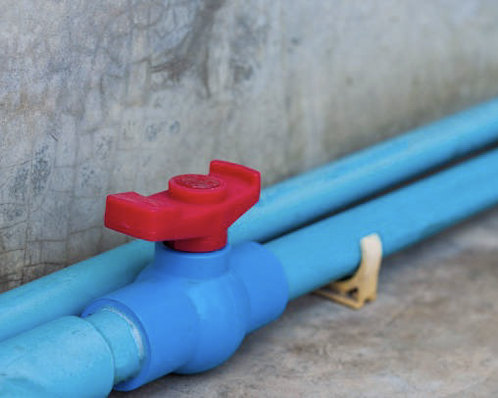
While a single valve’s job is to stop water, the purpose of choosing PVC for that valve is a strategic decision for the entire system. When a project uses PVC pipes, matching them with PVC valves is the smartest choice. It creates a seamless, homogenous system. You use the same solvent cement for all connections, which simplifies installation and reduces the chance of errors. You eliminate the risk of galvanic corrosion, which can happen when you connect different types of metal in a pipeline. For Budi as a distributor, stocking a system of PVC pipes, fittings, and our Pntek valves means he can offer his customers a complete, integrated solution. It’s not just about selling a valve; it’s about providing the components for a more reliable, affordable, and longer-lasting water management system.
Conclusion
A PVC ball valve is a corrosion-proof, affordable device for on/off flow control. Its simple design and the excellent properties of PVC make it the standard choice for modern water systems.
Post time: Aug-28-2025


